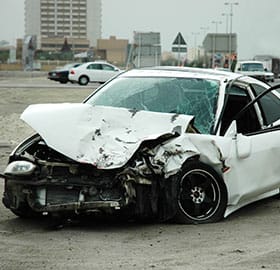 Florida has taken a significant step toward improving road safety with the implementation of House Bill 351, which went into effect on July 1, 2025. This groundbreaking legislation transforms what was previously considered a civil traffic infraction into a criminal offense for the most dangerous speeding behaviors. Understanding these new laws is crucial for Florida drivers, as the consequences extend far beyond simple traffic tickets and could significantly impact how car accidents are handled in the state.
Florida has taken a significant step toward improving road safety with the implementation of House Bill 351, which went into effect on July 1, 2025. This groundbreaking legislation transforms what was previously considered a civil traffic infraction into a criminal offense for the most dangerous speeding behaviors. Understanding these new laws is crucial for Florida drivers, as the consequences extend far beyond simple traffic tickets and could significantly impact how car accidents are handled in the state.
What Constitutes “Dangerous Excessive Speeding”
Under the new law, Florida now defines “dangerous excessive speeding” as a criminal offense that occurs when drivers:
- Drive 50 mph or more over the posted speed limit
- Drive at 100 mph or more in a manner that threatens the safety of people or property
These thresholds represent the most extreme speeding behaviors that pose the greatest risk to public safety. For perspective, driving 120 mph on a 70 mph highway or traveling 80 mph in a 30 mph residential zone would now constitute criminal offenses rather than simple traffic violations.
The Connection to Car Accidents: Why This Matters
Speeding contributes to approximately 26% of traffic fatalities across the United States, making it one of the deadliest behaviors behind the wheel. The relationship between excessive speed and accident severity is particularly concerning:
Increased Accident Severity
When vehicles travel at extremely high speeds, the physics of crashes become deadly. As Orange County Sheriff John Mina noted, “When you are going over 100 miles an hour and you get into a crash, you’re not going to survive that, and neither is anyone you hit going to survive that.”
The force of impact in high-speed crashes causes:
- More severe injuries and fatalities
- Greater property damage
- Reduced survivability for all parties involved
- Longer emergency response times due to the complexity of severe crashes
Reduced Reaction Time
Excessive speeding dramatically reduces a driver’s ability to:
- React to sudden changes in traffic conditions
- Stop in time to avoid obstacles or other vehicles
- Maintain control of their vehicle
- Navigate curves and turns safely
How the New Law Impacts Car Accident Cases
The criminalization of excessive speeding creates several important implications for car accident cases in Florida:
Enhanced Liability Determination
When a driver is charged with dangerous excessive speeding in connection with an accident, it provides strong evidence of negligence. This criminal charge can significantly strengthen an injury victim’s case by clearly demonstrating that the speeding driver engaged in reckless behavior that directly contributed to the crash.
For Accident Victims
- Stronger compensation claims: Evidence of criminal speeding behavior strengthens personal injury claims and may lead to higher settlement amounts.
- Clearer fault determination: The criminal nature of the offense makes it easier to establish the speeding driver’s liability in civil proceedings.
What This Means for Florida Drivers
Prevention is Key
The best strategy for Florida drivers is simple: slow down. The consequences of excessive speeding now extend far beyond traditional traffic tickets:
- Criminal records that can affect employment and other opportunities
- Potential jail time even for first-time offenders
- Significant financial penalties and insurance increases
- Possible license suspension or revocation
If You’re Involved in an Accident with an Excessive Speeder
If you’re injured in an accident caused by someone engaged in dangerous excessive speeding:
- Seek immediate medical attention for all injuries, no matter how minor they may seem
- Contact law enforcement to ensure proper documentation of the scene and circumstances
- Gather evidence including witness statements, photos, and any available video footage
- Consult with an experienced personal injury attorney who understands how the new law affects accident cases
Looking Ahead: A Safer Florida
Florida’s new excessive speeding law represents a significant shift in how the state addresses dangerous driving behaviors. By criminalizing the most egregious speeding violations, Florida joins other states in recognizing that extreme speeding is not merely a traffic issue but a serious public safety concern.
The law’s impact on car accidents could be substantial. Not only does it provide stronger tools for holding dangerous drivers accountable, but it also creates powerful deterrents that may prevent accidents from occurring in the first place. For accident victims, the law provides clearer pathways to compensation and justice.
As Florida continues to see high numbers of traffic accidents—with over 394,000 recorded in 2023 alone—this new legislation represents an important step toward making the state’s roads safer for everyone.
Contact Our Personal Injury Law Firm Today!
Florida’s new dangerous excessive speeding law marks a turning point in traffic safety enforcement. By treating the most extreme speeding behaviors as criminal offenses rather than simple traffic infractions, the state is sending a clear message: reckless speeding will no longer be tolerated.
For Florida drivers, the message is clear—slow down and drive responsibly. For those injured by reckless speeders, the new law provides stronger legal tools for seeking justice and compensation. As this law takes effect, we can expect to see significant changes in how speeding-related accidents are prosecuted, defended, and resolved in Florida’s courts.
The ultimate goal is simple: safer roads and fewer tragic accidents caused by excessive speeding. Only time will tell if this bold legislative step achieves its intended effect, but early signs suggest that Florida drivers are taking notice of the serious consequences that now await those who choose to drive dangerously fast. If you have been injured in an accident caused by excessive speeding, you need sound legal advice. At the Law Offices of Russ E. Robbins, P.A., our entire practice is focused on accident injuries and wrongful death. Contact us today for your free consultation, we don’t get paid unless you do!


